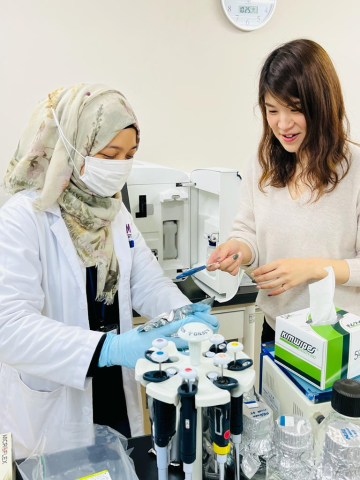What motivated you to pursue international agriculture, forestry, and fisheries research?
I am interested in agriculture and environmental issues in developing regions, and have conducted research on agriculture in developing regions at university and graduate school. I wanted to be involved in international affairs as a researcher after graduation, and I applied to the International Agricultural Research Institute because I thought it was the best institute to work on agriculture, forestry, and fisheries issues in developing countries, especially since my seniors and professors had been doing research with me since I was a university student. After joining the institute, although our fields are different, I have many opportunities to come in contact with various ways of tackling agricultural and environmental problems in developing countries and their results, and I am in the process of learning that there are many different ways to contribute to developing regions.
Please introduce your current research.
I am developing technology to promote the recycling of the large amount of agricultural waste generated from tropical agriculture in developing countries, which is a factor in the risk of climate change, by utilizing microorganisms. In other words, we are developing technology to convert cellulosic biomass into saccharified liquid using the power of bacteria, so that it can be effectively used for energy and other purposes. Through the development of this technology, we aim to reduce agricultural crop residues that cause environmental problems and make the world more environmentally friendly. Currently, we are working with counterparts in Malaysia and Thailand to develop a technology for saccharification using microorganisms.
What message would you like to convey to female students?
Many people may hesitate to go into research, but if they are interested, I hope they will not give up and give it a try. Currently, there has not been an explosive increase in the number of female researchers, and it is true that it is difficult to see what the future holds after completing university or graduate school. However, I believe that recently there has been a move toward creating a better working environment, such as the establishment of a nursery school available to employees within the university and the promotion of maternity leave at research institutes. Also, if you look outside of Japan, there are various career paths and lifestyles of female researchers, which removes the concept of what you should do if you are from a science background that is familiar to you. I hope that you will gather a variety of information, and from there, flesh out your own vague ideas about the future, and open the door to a bright future.


